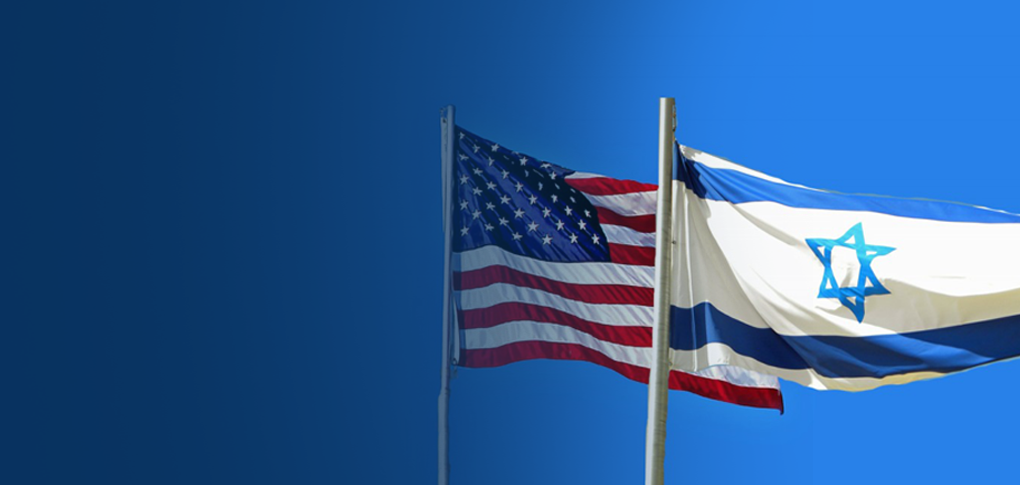Last month, U.S. Africa Command hosted its premier multilateral exercise, African Lion 22, involving 7,500 coalition forces from 10 nations across the Maghreb and West Africa. This year, beyond the usual roars of Moroccan and Senegalese lions, USAFRICOM’s foremost exercise was augmented by those of another pride: Israeli lions. Further promoting the Israeli-Moroccan partnership — made possible by the 2020 Abraham Accords — would allow the United States to multiply its strategic footprint in Africa without diverting resources from other theaters.
Africa has emerged as a lynchpin of the global strategic balance of power. Renewed strategic competition and the proliferation of violent extremist organizations threaten to undermine the integrity of African states and key U.S. strategic interests. At the same time, these challenges present an opportunity for Morocco — America’s oldest treaty ally and a historical Maghrebi power — to come into its own as a regional leader and stability provider with the help of newfound Israeli technical and security support.
Following decades during which the United States’ focus has been diverted to other regions, U.S. competitors have achieved significant military entrenchment in Africa at the expense of the stability and political-economic independence of African countries. Beijing now refers to Africa as China’s “second continent,” according to AFRICOM commander Gen. Stephen Townsend.
Beyond its military inroads, China hopes to fuel its geoeconomic rise with African natural wealth, for example by increasingly monopolizing Africa’s rare earth minerals needed for the batteries and chips necessary for any green revolution. Meanwhile, Russian mercenaries are driving civil conflicts and military juntas across the continent.
At the sub-state level, Africa has seen a historic rise in violent extremist activity, destabilizing local African countries and creating openings for encroachment by U.S. competitors. The Sahel has become the global epicenter of jihadi extremist activity — with violent extremist organizations seizing territory and local economies, fomenting displacement crises, and compelling threatened regimes to turn to Russian and Chinese assistance. Iran also exploits this trend by equipping Islamic violent extremist organizations throughout Africa, from Somalia to West Africa.
The burgeoning Israeli-Moroccan partnership, with proper U.S. leadership and nurturing, can help address Africa’s great power and violent extremist challenges as well as unlock the continent’s promise.
Since their 2020 rapprochement, Israel and Morocco have taken significant steps toward balancing against the threat from Russia- and Iran-backed Algeria via their groundbreaking $500 million air defense deal in February 2022. Moreover, Morocco has become the largest source of foreign direct investment in West Africa, beating out even rising Chinese capital. By crowding out Chinese investments, an extension of Chinese military power, Morocco is helping to roll back China’s implicit challenge to U.S. security interests and local autonomy in these areas.
Morocco has also long stood out among the Islamic and African nations as a leader in counterterrorism, especially within the U.S.-led war on terror. If properly paired with Israeli counterterrorism expertise, Morocco is uniquely positioned to be a bulwark against terrorism in the Sahel and in Francophone Africa, where Morocco’s regional and Islamic credibility make it a fitting partner to take over from withdrawing French peacekeepers.
However, realizing the full potential of Israeli-Moroccan cooperation in Africa will require short-term U.S. investment and continuous U.S. strategic focus and political support. Despite their impressive progress, Israel and Morocco both lack certain advanced military systems and capital needed to fully operationalize their partnership. Likewise, the partnership itself is contingent on the U.S. respecting its commitments vis-a-vis the Western Sahara, which undergirded the 2020 Israel-Morocco normalization agreement.
The United States should provide more opportunities for these two partner militaries to train side by side. This should include upgrading Israel to full participation in African Lion — as well as incorporating Israel into other regional multilateral exercises — to optimize interoperability between Israel, Morocco and other regional partners. This is a crucial first step toward establishing a functional, semiautonomous security network.
The U.S. should also triangulate preexisting regional frameworks, such as the Utah National Guard State Partnership Program with Morocco and the bilateral agreement between the National Guard Bureau and the Israel Defense Forces, to maximize space for Israeli-Moroccan military coordination.
The Biden administration should also uphold Trump-era commitments to the Moroccan’s Western Sahara Autonomy Proposal — the critical underpinning for Israel-Morocco normalization — which have been rapidly adopted by the international community in recent months, reducing potential blowback from the policy.
Finally, the United States should help boost Morocco’s military-industrial capability. Most immediately, this entails equipping Morocco to overcome the menace of Russian and Iranian destabilization via Algeria, including fulfilling pending sales of precision-guided munitions and MQ-9B SeaGuardian drones. More broadly, the Biden administration should review short-term funding to help Israel and Morocco rapidly scale up their partnership in security, not to mention critical stability-providing domains like food, water and energy security.
These steps will not only allow Israel and Morocco to lead the way for a partner-led regional security strategy, but they will also create the stable geopolitical space necessary to unlock the potential of Israeli-Moroccan partnership in critical technological and financial domains. In a moment of both historic instability and opportunity, equipping our Middle Eastern and North African security partners to jointly shoulder the burden holds the key to setting a new course of mutual prosperity for the region.
Retired U.S. Army Lt. Gen. H. Steven Blum served as deputy commander of U.S. Northern Command from 2008-2010 and as chief of the National Guard Bureau from 2003-2008. In 2015, he was a participant in the Jewish Institute for National Security of America’s Generals and Admirals Program. Samuel B. Millner is a policy analyst at JINSA.
Originally published in Breaking Defense.

